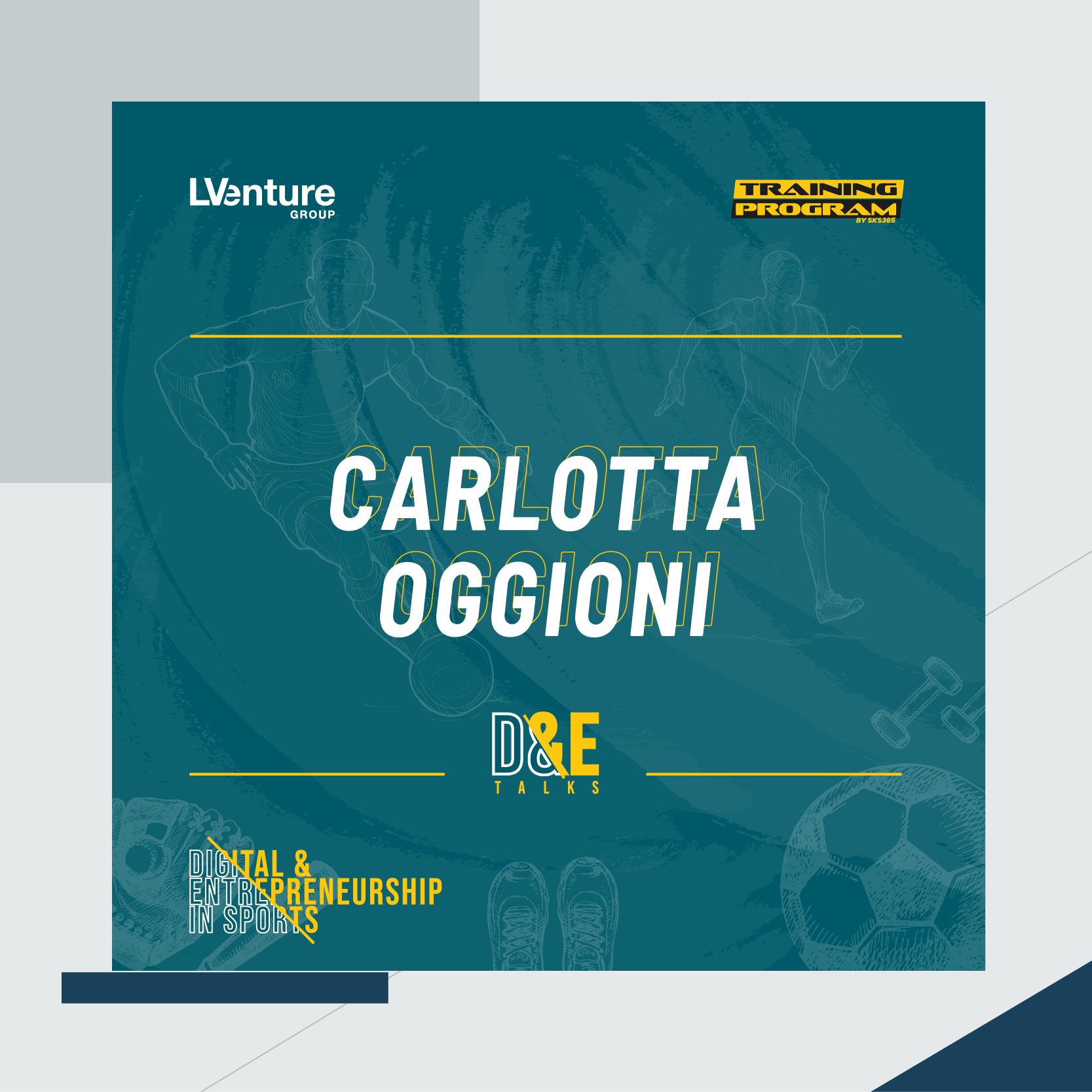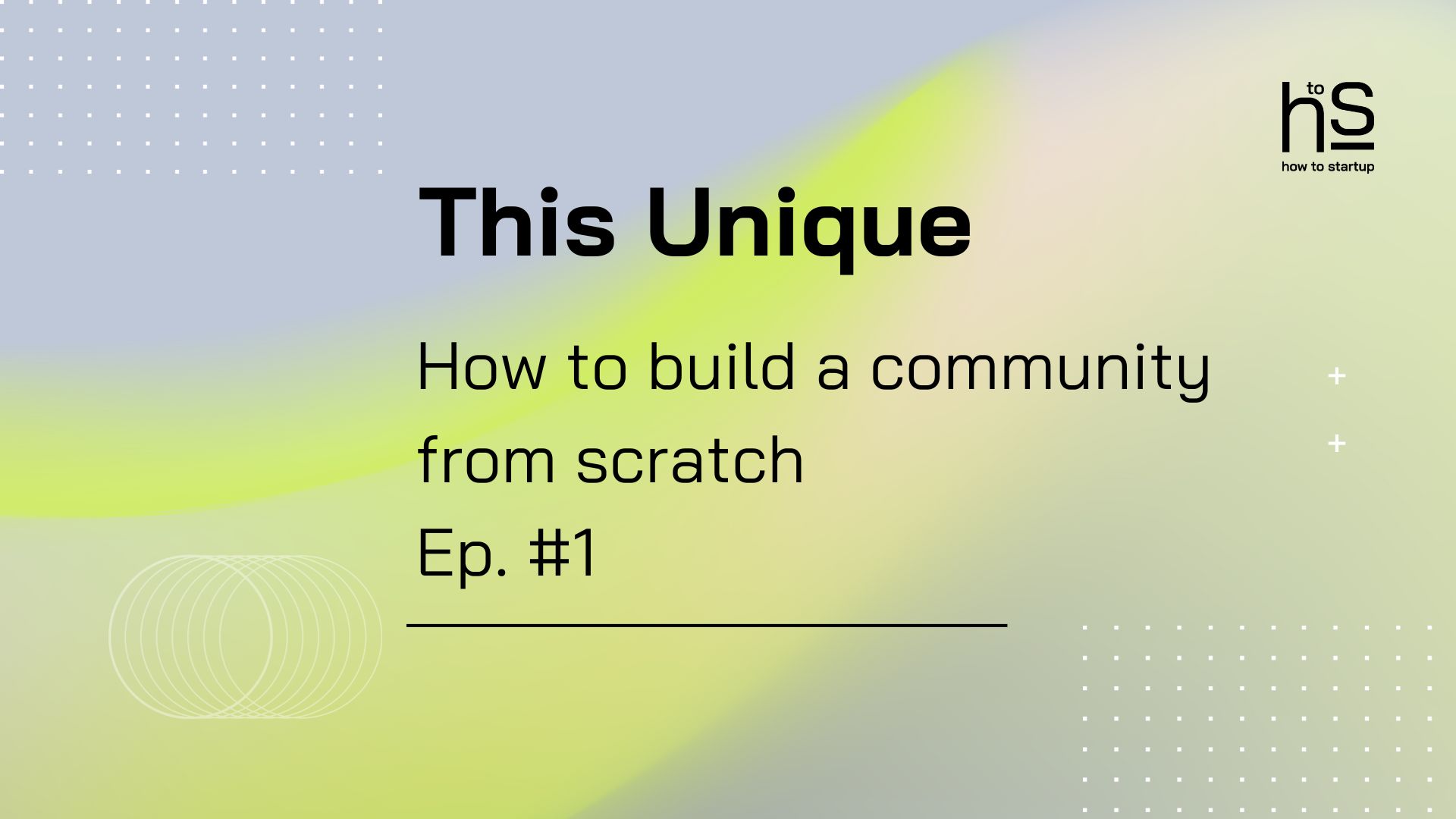From Rome to Pavia to the United States, with volleyball in her DNA: still today volleyball is an important reference point in Carlotta Oggioni‘s sporting and professional career.
It is with her that we line up for a new appointment with D&E Talks, our interviews with the athletes involved in Digital & Entrepreneurship in Sports, the Digital Economy Training Program by LVenture Group and Training Program by SKS365.
A passion inherited from her family that led her, at a very young age, first to travel around Italy and then to choose a path of training and sport at the University of Maryland, playing in the NCAA championship and obtaining a degree in economics. That experience in the United States as a student-athlete gave her the keys to access two worlds, the sporting one and the professional one, which she has the ambition to approach more and more without giving up her passion: volleyball.
Your sporting experience in volleyball comes from afar, including the path of your parents.
What are the values that this sport has passed on to you?
Volleyball is a family sport, not only my parents, but other relatives have played or continue to play volleyball, I was almost born in the gym! (she jokes). It is a sport that has given me and continues to give me so much because I am still playing. First of all, the value of the team, working as a group to reach a goal together. Then the value of hard work, never giving up to reach the goal, it seems easy to say but doing it every day, waking up in the morning to train hard, is another matter. Finally, the altruism and respect for others, being part of a community, everyone is essential and without the help of the companion the point is not brought home. Every member of the team, of the staff is critical.
“Everyone is essential
and without the help of the companion
the point is not brought home.
Every member of the team is crucial”
Do you think these values, especially from a soft skills perspective, give you an edge professionally?
Definitely. I have always played a team sport and the lessons he has given me I have carried with me from my training to my professional experience. At work, you’re never really alone. Even when there is no team management, you still deal with the client who, with respect to their needs, needs a certain support. Teamwork is an all-round constant, both with your own team and with external teams.
You have experienced the US university model, where sport is combined with training: can you tell us something about it?
I started playing volleyball when I was 5 and a half years old in Rome where I suddenly played the national finals and in the B1 and B2 categories. I then moved to Pavia to play in the A2 Series with Riso Scotti, the last year of high school and finished my studies I made the decision to leave for the United States. I received a scholarship proposal for academic-sports merits. Recruiters from Oregon State University analyzed my videos, came to Italy and selected me. It wasn’t an easy choice to go to the other side of the world, considering how the level of English we learn in Italy is still to be improved (let’s say that) but it was definitely exciting. In the States you’re a student-athlete, a figure that doesn’t exist in Italy. In Italy we try to combine education and sport, but separately, which is a bit of an oxymoron, while in the United States you’re a student and an all-round athlete. From Oregon State I then transferred to the University of Maryland, which has great prestige at an international level, graduating in Economics, even a little early.
“In the States you are a student-athlete,
a figure that doesn’t exist in Italy.
In Italy we try to combine training and sport, but separately,
which is a bit of an oxymoron,
while in the United States you’re a student and an all-round athlete.
all-around”
Is this a model to which Italy should look?
I think it is truly a model that it would be appropriate to try to replicate in our country as well and an experience that I highly recommend an athlete to try, because it is very formative, although very hard. Every day we would get up very early for the first training session in the gym, we would then study in the morning with a second training session at lunchtime. After the afternoon class session we would have our third workout and that was the daily routine. From a physical and mental point of view it was definitely an important test, but it also gave me a lot for my subsequent professional career path. Let’s just say that the student-athlete path hands you the keys to both worlds. Besides the growth as an athlete, the training in the United States is much more pragmatic, from the first year you have the opportunity to get in touch with different companies, because the concept is to prepare a potential entrepreneur of the future. I think the theoretical training in Italy is excellent, but the preparation I had to face the challenges of the real world in the United States is definitely more advanced.
“Training in the U.S. is much more pragmatic,
from the first year you have the opportunity to come into contact with different companies,
because the concept is to prepare
a potential entrepreneur of the future”
Italian sport, especially in team sports, is facing a difficult period.
Women’s volleyball, from the latest results of Italian teams to the national team is probably bucking the trend.
What is the state of health of the movement?
At the national level, there have been great results in recent years, for a number of reasons. There has been a strong focus on young people, with a change from the past, investing in young talent. At the level of the major national teams, innovative techniques have been introduced for work outside the gym, with workshops on neuroscience and the development of applications that are perhaps already known, but little used until now in Italy, for the preparation of athletes, performance monitoring, analysis of the games. There is an evolution that is still missing in the lower levels of volleyball, so if I had to make an appeal to the Federation, I would ask for more support outside the top level because the growth of a movement always comes from below: volleyball is the sport with the highest number of members in Italy.
“If I were to make an appeal to the Federation,
I would perhaps ask for more support outside the top level as well
because the growth of a movement
always comes from below”
On a business, entrepreneurial (including digital) level, our country suffers from gender inequality.
Is this something you’ve encountered in your sports experience as well?
In volleyball there is a difference, from a salary point of view, both in the high level and in the lower categories, and there is a disparity in treatment even in terms of private life, because the male athlete is always less judged in his behavior. This year there was a case that raised a lot of controversy because a female player was fired by her club because she was on maternity leave. I feel like saying that in 2021 these situations are unacceptable, I think it is time to move from words to concrete facts and make a cultural leap.
Many sports, from the style of play, to preparation, to the use of new technologies are innovating significantly.
How is the situation with volleyball?
At the highest level, innovation is very visible and is also exploited. I currently play B2 and there is very little technology. We are getting a little bit closer on the communication side, from social to marketing, but for the moment we are stopped there. When I was in the United States I was constantly monitored in my state of health, preparation and performance with various devices. However, I’m hopeful because the national team and the top level are setting an excellent example and I’m convinced that slowly the use of technology will expand.
Your current career path is already in the digital realm.
In this highly pandemic-impacted environment, are you seeing transformations at the work and business level?
I’ve been working in the digital world for a few years now, and certainly the pandemic has accelerated the digital transformation that has been talked about for decades. As a country we’re a bit behind the global trends and the pandemic, although negative, has forced some changes. At a professional level, we have certainly worked harder than last year because companies feel the need for digital transformation more urgently.
“As a country, we’re lagging a bit behind global trends.
and the pandemic, although negative, has forced changes.
At the professional level, we have certainly worked harder
than we did last year because companies feel
companies feel the need for digital transformation more urgently”
Why did you choose to participate in Digital & Entrepreneurship in Sports?
What areas of the Program have impressed you the most and what are your expectations after the first two meetings?
I decided to participate because this Program is a bit of a continuation of my experience. I have always tried to bring together the two worlds that are fundamental to me, the sporting and the professional, and I would like to continue to do so. I’m very satisfied with the path, working in a group, because the values I’m used to always come back.
Sports and digital business are increasingly linked.
Do you think the Program can give you insights or useful skills in this regard?
The gap between sport and business is narrowing, sport itself is increasingly a global business. I personally have an idea in mind that I would like to try to pursue within this program and I hope that together with the group that has been created and with other colleagues, I can get to launch it soon. I am very happy that the sport is gaining momentum outside of the narrow dynamics of sports. Thankfully, there is a lot of progress being made. Within the sport there is another world made up of many stakeholders: sponsors, fans, media and it is very right that the whole system is considered equal to any other business.
“Within sports there is another world made up of so many stakeholders:
the sponsors, the fans, the media, and it is only fair that the whole system
be considered on a par with any other business.

















